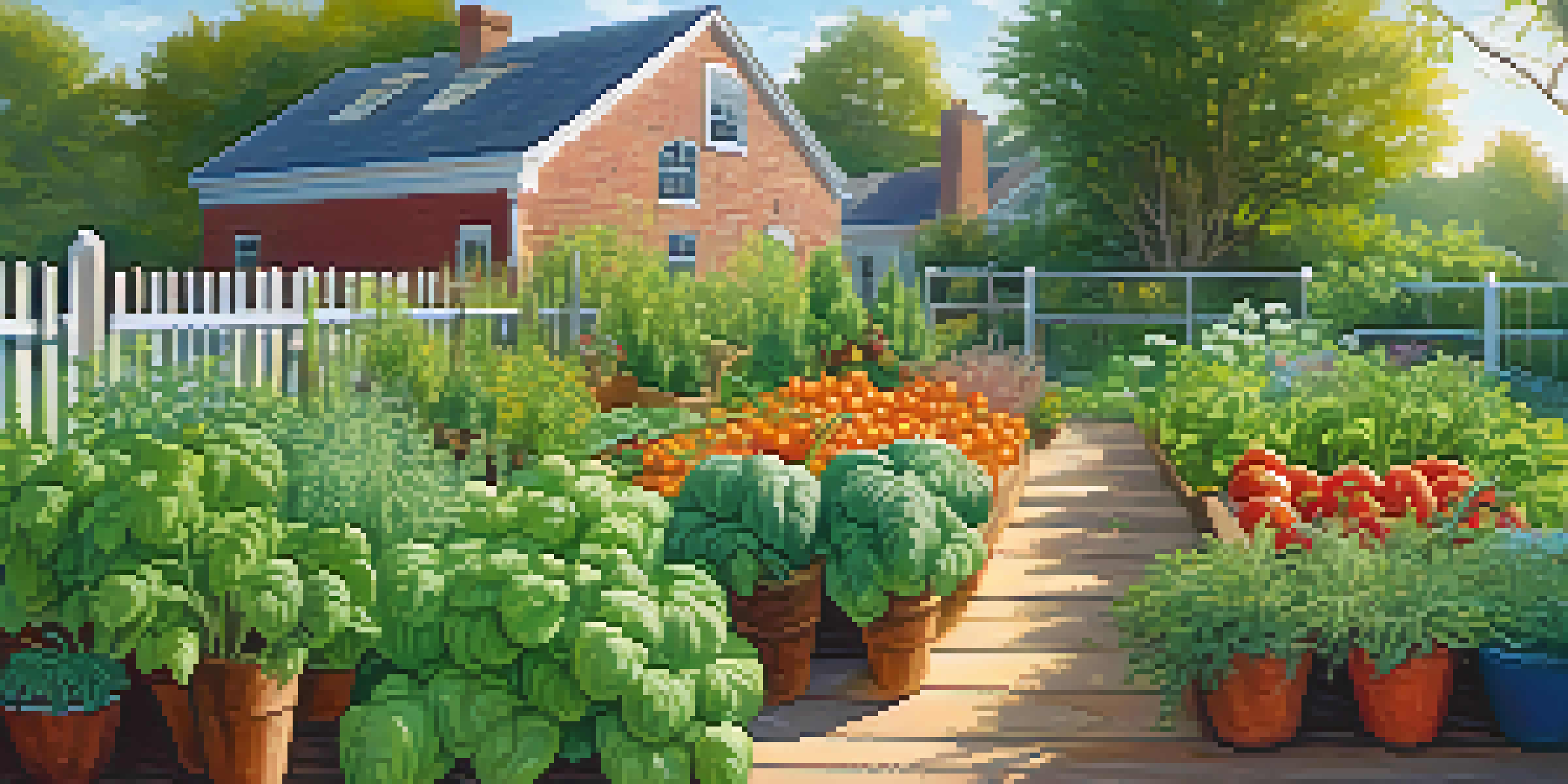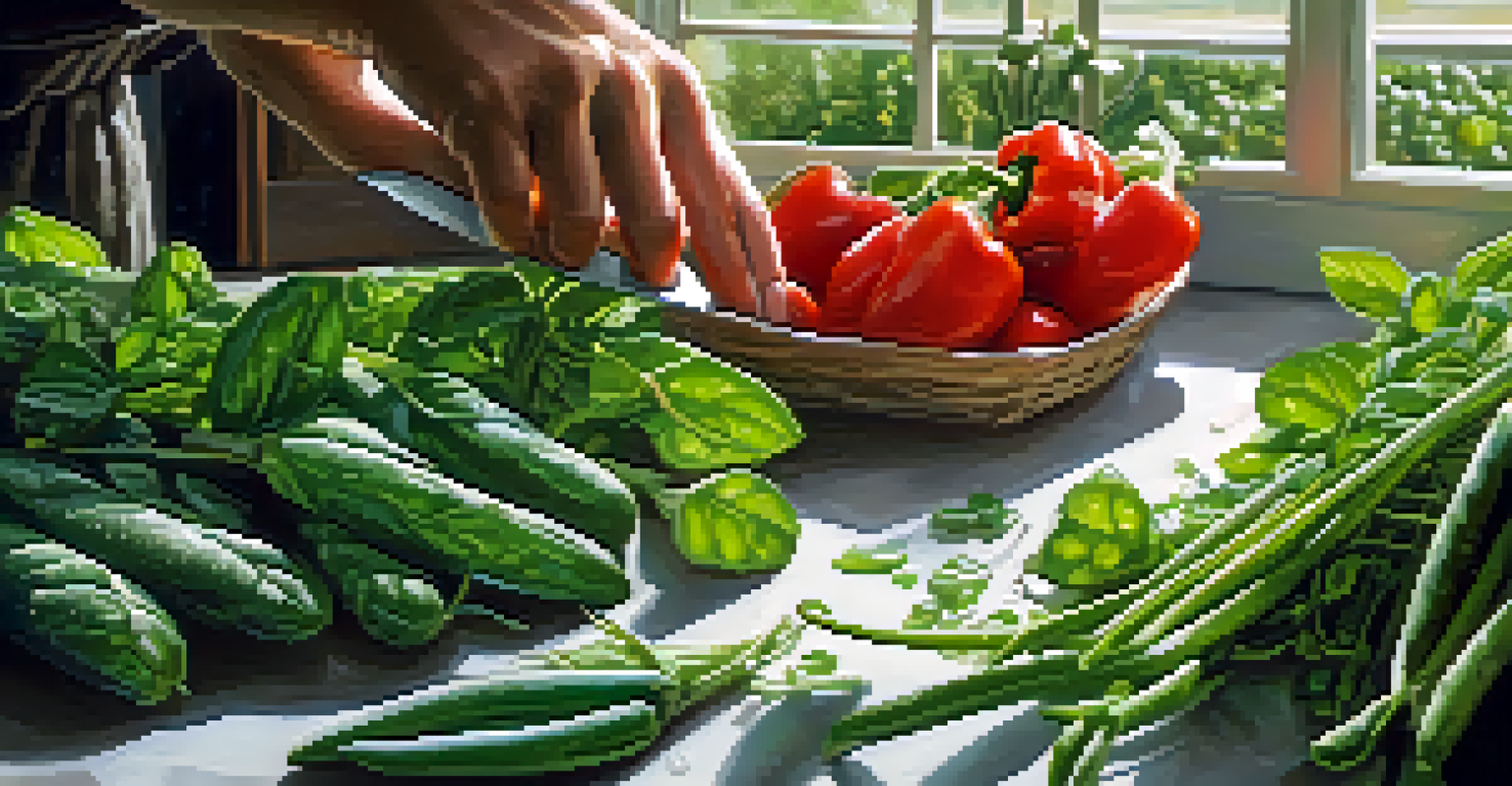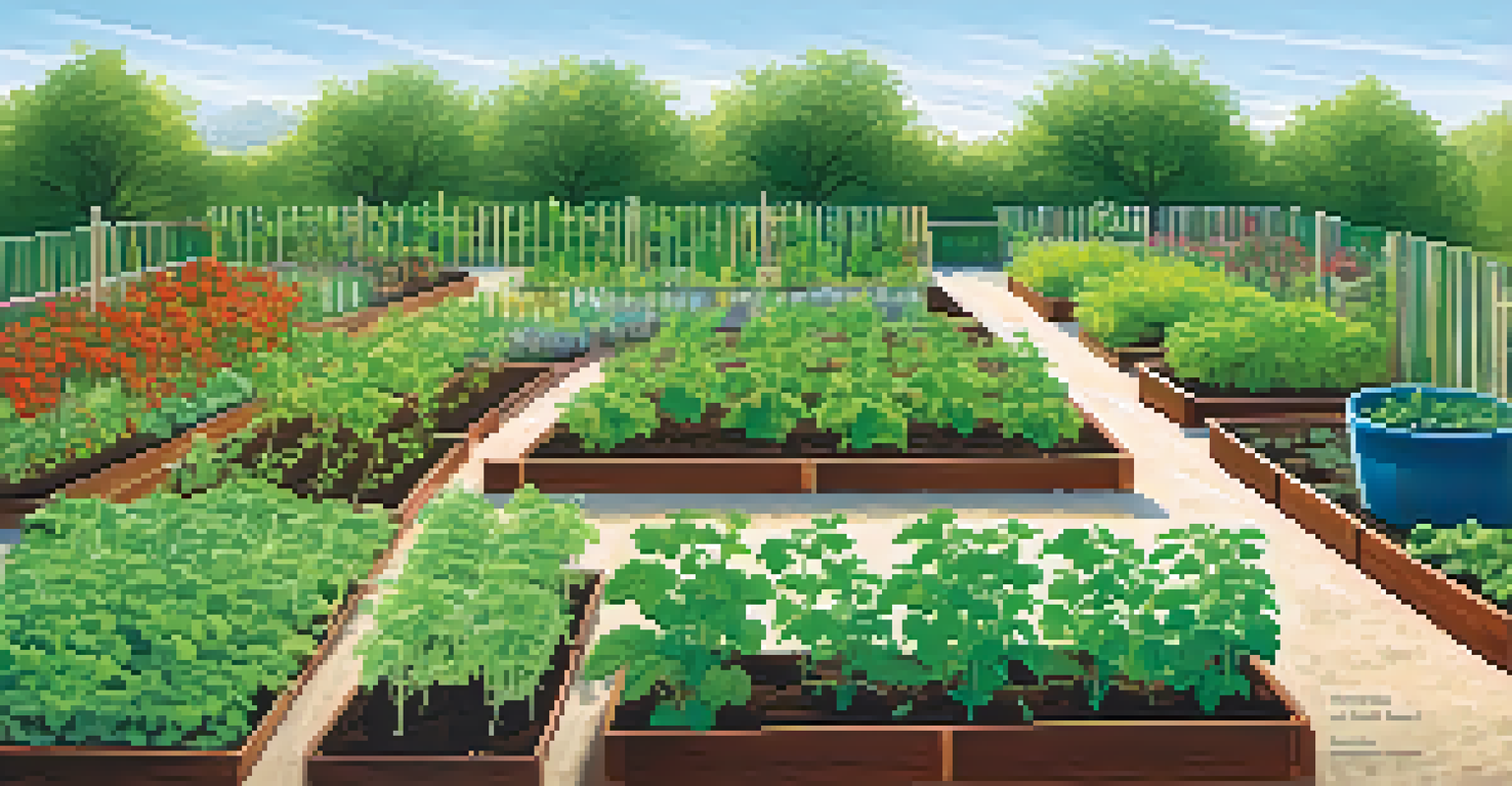Growing Herbs with Vegetables: The Ultimate Companion Guide

Understanding Companion Planting for Herbs and Vegetables
Companion planting is the practice of growing different plants together for mutual benefits. Herbs and vegetables can form a dynamic duo, enhancing growth and flavors. For instance, basil can boost the growth of tomatoes while repelling pests.
The greatest gift of the garden is the restoration of the five sense.
This technique not only maximizes space but also creates a thriving ecosystem in your garden. By choosing the right plant combinations, you can improve nutrient uptake and reduce the need for chemical fertilizers. It's like creating a mini-community in your garden that supports each other.
As you explore companion planting, remember that not all plants get along. Some may compete for resources or attract harmful pests. Therefore, understanding which herbs complement your vegetables is key to a flourishing garden.
Choosing the Right Herbs to Pair with Vegetables
When selecting herbs to grow alongside your vegetables, consider their growth habits and needs. For example, rosemary pairs well with carrots, while cilantro complements tomatoes. Each herb brings unique benefits that can enhance your vegetable crops.

Think about the culinary uses of these herbs too; growing them together makes it easy to whip up fresh dishes. Plus, having fresh herbs at your fingertips can elevate your cooking experience. Imagine snipping fresh basil right before tossing it into a pasta dish.
Companion Planting Benefits
Growing herbs and vegetables together can enhance growth, improve flavors, and create a thriving garden ecosystem.
It's also essential to consider sunlight and water requirements. Some herbs thrive in full sun, while others prefer partial shade. By aligning their needs, you ensure both herbs and vegetables flourish together, creating a harmonious garden.
Creating the Perfect Garden Layout for Herbs and Veggies
A well-planned garden layout can make all the difference in the success of companion planting. Consider grouping herbs and vegetables based on their growth habits and needs. For instance, place tall plants like tomatoes to the north of shorter herbs to avoid shading them.
To plant a garden is to believe in tomorrow.
Utilizing raised beds or container gardening can also help optimize your garden space. These methods allow for easy access and better control over soil quality, promoting healthier plants. Think of your garden as a canvas where each plant plays a role in the overall masterpiece.
Don’t forget about spacing! Overcrowding can lead to competition for nutrients and light. Giving each plant enough room to grow will help prevent disease and promote healthier yields.
Watering and Nutrient Needs of Herbs and Vegetables
Watering requirements can vary significantly between herbs and vegetables, so it's crucial to understand their needs. Most herbs prefer well-drained soil and moderate watering, while vegetables may require more consistent moisture. This means you'll need to pay close attention to both groups.
Incorporating organic matter like compost can help improve soil structure and moisture retention. By enriching the soil, you not only provide essential nutrients but also create a more forgiving environment for both herbs and vegetables. Think of it as giving your plants a nutritious boost.
Choosing Compatible Plants
Selecting herbs that match the growth habits and needs of your vegetables is essential for a harmonious garden.
Regularly monitoring the moisture levels will help you avoid over- or under-watering. A simple soil moisture meter can be a game-changer, ensuring that both herbs and vegetables receive just the right amount of water.
Common Pests and How Herbs Can Help Deter Them
Pests can wreak havoc in any garden, but certain herbs can act as natural deterrents. For example, planting marigolds alongside your vegetables can repel aphids and nematodes. Similarly, mint can deter ants and beetles, making it a great companion for various crops.
By incorporating herbs with pest-repelling properties, you reduce the need for chemical pesticides. This not only protects your plants but also creates a healthier environment for beneficial insects. Think of your garden as a fortress, with herbs standing guard against unwanted visitors.
However, be cautious with some herbs, as their strong scents can deter pollinators as well. Balancing pest control with attracting beneficial insects is essential for a thriving garden ecosystem.
Harvesting Techniques for Maximum Flavor and Growth
Harvesting your herbs and vegetables at the right time can significantly impact their flavor and growth. For herbs, it's often best to pick them in the morning when their oils are most concentrated. Regularly harvesting can also encourage plants to grow more vigorously.
With vegetables, timing is crucial. Overripe vegetables can lead to reduced yields and deter new growth. Similar to how you would pick ripe fruits, keeping an eye on your vegetable garden ensures that you enjoy the best flavors while promoting healthy plant development.
Effective Garden Layout
A well-planned garden layout, considering spacing and sun exposure, maximizes the success of companion planting.
Incorporating proper harvesting techniques not only enhances flavors but also keeps your garden productive. Think of it as a dance between you and your plants, where timing is everything for a harmonious outcome.
Seasonal Considerations for Growing Herbs with Vegetables
Understanding seasonal changes can help you plan and maintain a successful herb and vegetable garden. Some herbs thrive in cooler weather, while others prefer the heat of summer. For example, cilantro flourishes in spring and fall, while basil loves hot summer days.
By planting herbs that complement the growing seasons of your vegetables, you can maximize your garden's productivity year-round. It's like having a rotating cast of characters that keeps your garden lively and vibrant.

Additionally, consider crop rotation and planting schedules to enhance soil health and prevent pest build-up. This strategy ensures that your garden remains active and productive, even as seasons change.